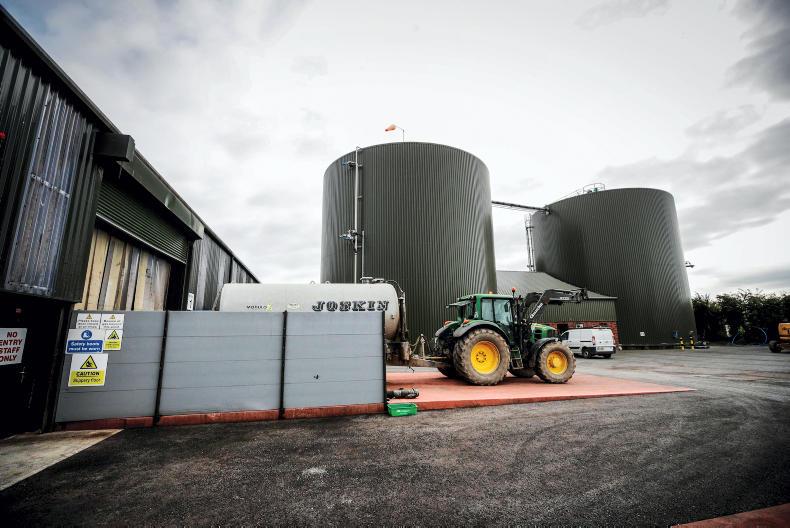Farmers and co-ops are to be paid for producing gas on farms by Gas Networks Ireland (GNI) as part of the Renewable Heat Incentive (RHI) scheme.
“The support scheme should fill the gap between renewable and natural gas,” GNI’s renewable gas project lead Ian Kilgallon told the Irish Farmers Journal at the Guild of Agricultural Journalists last week.
He added that GNI had just secured planning permission for a biogas injection point in Cush, Co Kildare, to be followed by 13 other sites around the country. Tankers will collect gas from local producers, feeding slurry, grass and food waste or by-products into anaerobic digesters.
While the biomass section of the RHI scheme will pay industrial heat users to use wood pellets or energy crops in their boilers, these may be imported. By contrast, the gas payment at local injection points could benefit Irish farmers more directly – whether they invest in a digester and upgrading plant individually or as group, produce raw gas and sell it to a local upgrader or sell surplus grass or catch crops to a neighbouring anaerobic digester.
In addition to traditional uses of network gas for domestic or industrial heat and electricity production, GNI is also rolling out filling stations for heavy-goods vehicles. Simon Shannon, who manages utility contracts for Diageo Ireland, said the company intended to use grid-injected biogas to power the combined heat and power plant of its St James’s Gate brewery in Dublin as part of efforts to cut its carbon emissions by half.
The first supplier of biogas to GNI will be Green Generation, a plant using slurry and food waste on the Costello pig farm in Nurney, Co Kildare.





SHARING OPTIONS